This article was co-authored by Alex Dimitriu, MD and by wikiHow staff writer, Jennifer Mueller, JD. Alex Dimitriu, MD is the Owner of Menlo Park Psychiatry and Sleep Medicine, a clinic based in the San Francisco Bay Area with expertise in psychiatry, sleep, and transformational therapy. Alex earned his Doctor of Medicine from Stony Brook University in 2005 and graduated from the Stanford University School of Medicine's Sleep Medicine Residency Program in 2010. Professionally, Alex has dual board certification in psychiatry and sleep medicine.
There are 8 references cited in this article, which can be found at the bottom of the page.
This article has been viewed 49,339 times.
While waking up with a puffy face might be annoying or embarrassing, it's usually no cause for concern. If you regularly have a puffy face in the morning, changes to your eating and sleeping habits may help it go away naturally. However, if your puffy face (technically called "facial edema") is accompanied by other symptoms, such as throat swelling, difficulty breathing, or facial tenderness, talk to a doctor. That puffiness might itself be the symptom of an allergic reaction or some other medical problem.
Steps
Adjusting Your Sleeping Habits
-
1Sleep on your back to decrease the pressure on your face. Sleeping on your back is generally the best position if you're concerned about waking up with a puffy face or wrinkles (also called "sleep lines"). These issues can be caused by sleeping on your stomach or your side, which puts pressure on your skin.[1]
- If you're young and healthy, your sleeping position isn't necessarily that big of a deal. However, as you get older, you'll tend to notice differences in your skin.
-
2Prop up on 2 pillows to encourage fluid drainage. Even if you're not sleeping on your back, adding another pillow elevates your face so that fluid won't pool there. Provided your puffy face isn't caused by something else, you should notice improvement after a couple of nights.[2]
- Be conscious of your sleeping position. If propping yourself up also puts your neck at an odd angle, you might wake up with neck or shoulder pain. Get yourself situated so your neck isn't crunched.
Advertisement -
3Drink a glass of water before you go to bed each night. Even if you drink plenty of water throughout the day, an extra glass of water before you go to sleep can help keep your skin hydrated. Better hydration results in less fluid retention, which can cause a puffy face.[3]
- An extra glass of water (or two) is especially important if you had a drink or two earlier in the evening. The water can help counter the dehydrating effect of alcohol.
-
4Try meditation to calm your mind before bed. Stress can also cause a puffy face in the morning. If you find yourself tossing and turning or have a hard time falling asleep and staying asleep, a meditation practice might help. It doesn't need to be anything formal — just turn off the lights and sit or lie down on your bed. Remain completely still and focus on your breathing.[4]
- You might try one of the free smartphone apps with guided meditations to help promote calmness. Many sleep apps also have audio guided meditations that can help relax your mind and body and get you ready for sleep.
- The harder you try to force falling asleep, the harder it can be. If you're having trouble falling asleep, making the decision to just rest and meditate can take some of the pressure off.[5]
Making Dietary Changes
-
1Eat fresh fruit and low-fat dairy foods daily. Fresh fruit and low-fat dairy foods, such as yogurt and milk, contain vitamin B5, calcium, and vitamin D. These nutrients help your body naturally release excess fluids, which can decrease the puffiness in your face.[6]
- Try including a serving of each with every meal. For example, you might have some yogurt with strawberries for breakfast or grapes and cheese at lunch.
-
2Cut back on dehydrating drinks such as coffee, tea, and alcohol. While it might seem counterintuitive, your body is more likely to retain water if you're dehydrated. Reducing your consumption of drinks with caffeine and alcohol will leave you better hydrated, which can help prevent waking up with a puffy face.[7]
- In particular, avoid drinking alcohol or caffeinated beverages right before bed. This increases the chances that you'll be dehydrated while you sleep. If you do end up drinking late, drink twice as much water alongside the dehydrating beverage of your choice.
-
3Drink water throughout the day to stay hydrated. While the specific amount of water you need varies depending on your body size, age, and activity level, aim for 15.5 cups (3.7 liters) a day if you're male-bodied or 11.5 cups (2.7 liters) if you're female-bodied. This amount includes water that you would get from foods and other beverages.[8]
- If you exercise and sweat a lot, drink more water. The same goes if you drink something dehydrating, such as coffee or alcohol.
-
4Avoid salty and sugary foods and beverages. Salt and sugar encourage your body to retain water, which in turn leads to puffiness — even if you're otherwise well-hydrated. Stay away from particularly salty foods like potato chips and pretzels, and avoid adding salt to other foods you eat.[9]
- Processed foods, such as fast food and frozen dinners, often have a lot more salt and sugar than you think. Stick to whole foods as much as possible. It might take you a few minutes longer to prepare your meals, but your body (and face) will thank you.
Seeking Medical Attention
-
1Try an over-the-counter antihistamine if you think you have an allergy. Facial swelling can happen overnight if you're allergic to something in your bed or bedroom. If you think you've come into contact with something you're allergic to, an over-the-counter antihistamine, available at any grocery store or pharmacy, could provide instant relief.[10]
- This is more likely if you're sleeping in a different place, such as a friend's home or a hotel, but it could also happen if you've changed something recently, such as using a different laundry detergent you've never used before.
- If you have difficulty breathing due to an allergic reaction, seek medical attention immediately. A puffy face is one of the symptoms of anaphylaxis, which is a life-threatening condition that requires emergency treatment.
-
2Contact your doctor immediately if the swelling is sudden or painful. Some vague puffiness in the morning when you wake up might be annoying, but it's not usually a big deal medically. However, if the swelling comes on suddenly, or if your skin is tender or burning, there might be a more severe underlying cause.[11]
- In the case of an allergic reaction, you might also have difficulty breathing. On the other hand, if you have a fever, or if your skin is red and tender, that suggests that you have some sort of infection.
-
3Find out if your puffiness is a drug reaction. If you started waking up with a puffy face around the same time you started a new medication, your puffiness might be a reaction to the drug. Check the drug information for possible side effects or call your doctor or pharmacist and ask.[12]
- As far as side effects go, a little facial puffiness is relatively mild and generally no cause for concern. However, if it really bothers you, talk to your doctor about switching to a different medication.
-
4Take blood and urine tests as recommended by your doctor. Facial edema is a symptom. Before your doctor can treat it, they need to identify the underlying cause. This might involve blood and urine tests, X-rays, or liver and kidney function tests. Your doctor will ask questions about your medical history and your family's medical history, as well as any other symptoms you might have, so they can determine what tests to give you.[13]
- The idea that you might have problems with your liver or kidneys can be scary. However, early detection makes these issues easier to treat.
Expert Q&A
Did you know you can get expert answers for this article?
Unlock expert answers by supporting wikiHow
-
QuestionWhat if I can't fall asleep at night?
 Alex Dimitriu, MDAlex Dimitriu, MD is the Owner of Menlo Park Psychiatry and Sleep Medicine, a clinic based in the San Francisco Bay Area with expertise in psychiatry, sleep, and transformational therapy. Alex earned his Doctor of Medicine from Stony Brook University in 2005 and graduated from the Stanford University School of Medicine's Sleep Medicine Residency Program in 2010. Professionally, Alex has dual board certification in psychiatry and sleep medicine.
Alex Dimitriu, MDAlex Dimitriu, MD is the Owner of Menlo Park Psychiatry and Sleep Medicine, a clinic based in the San Francisco Bay Area with expertise in psychiatry, sleep, and transformational therapy. Alex earned his Doctor of Medicine from Stony Brook University in 2005 and graduated from the Stanford University School of Medicine's Sleep Medicine Residency Program in 2010. Professionally, Alex has dual board certification in psychiatry and sleep medicine.
Sleep Medicine & Psychiatry Professional If you're in the bed and you can't fall asleep after about 20 minutes, get up and do something relaxing, like reading a book in a dimly lit room. It can also help to make the decision to just rest and meditate, rather than trying to force sleep. When you stop trying so hard, it's more likely to happen.
If you're in the bed and you can't fall asleep after about 20 minutes, get up and do something relaxing, like reading a book in a dimly lit room. It can also help to make the decision to just rest and meditate, rather than trying to force sleep. When you stop trying so hard, it's more likely to happen.
Warnings
- Sunburn can also cause a puffy face, and might not be immediately apparent. Always wear sunscreen on your face with an SPF of at least 35 when you're going to be outside.[16]⧼thumbs_response⧽
References
- ↑ https://www.hopkinsmedicine.org/health/wellness-and-prevention/choosing-the-best-sleep-position
- ↑ https://www.health.com/beauty/fix-puffy-face
- ↑ https://www.shoutoutuk.org/2019/07/02/why-you-wake-up-with-a-puffy-face-and-how-to-combat-it/
- ↑ https://www.shoutoutuk.org/2019/07/02/why-you-wake-up-with-a-puffy-face-and-how-to-combat-it/
- ↑ Alex Dimitriu, MD. Sleep Medicine & Psychiatry Professional. Expert Interview. 16 October 2019.
- ↑ https://www.betterhealth.vic.gov.au/health/conditionsandtreatments/Fluid-retention-oedema
- ↑ https://www.betterhealth.vic.gov.au/health/conditionsandtreatments/Fluid-retention-oedema
- ↑ https://newsroom.uhc.com/health/fitness-resolutions-2020.html
- ↑ https://www.shoutoutuk.org/2019/07/02/why-you-wake-up-with-a-puffy-face-and-how-to-combat-it/
- ↑ https://www.shoutoutuk.org/2019/07/02/why-you-wake-up-with-a-puffy-face-and-how-to-combat-it/
- ↑ https://medlineplus.gov/ency/article/003105.htm
- ↑ https://medlineplus.gov/ency/article/003105.htm
- ↑ https://www.betterhealth.vic.gov.au/health/conditionsandtreatments/Fluid-retention-oedema
- ↑ https://www.hopkinsmedicine.org/health/treatment-tests-and-therapies/how-to-get-rid-of-bags-under-your-eyes
- ↑ https://www.betterhealth.vic.gov.au/health/conditionsandtreatments/Fluid-retention-oedema
- ↑ https://www.shoutoutuk.org/2019/07/02/why-you-wake-up-with-a-puffy-face-and-how-to-combat-it/
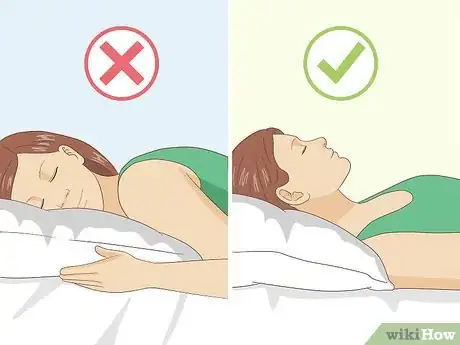
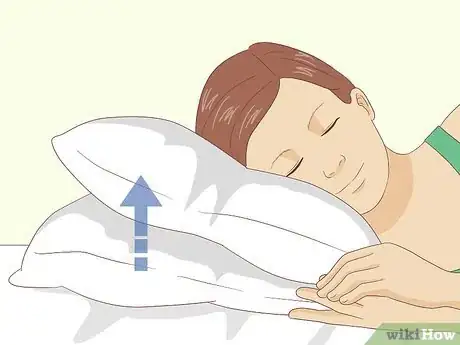
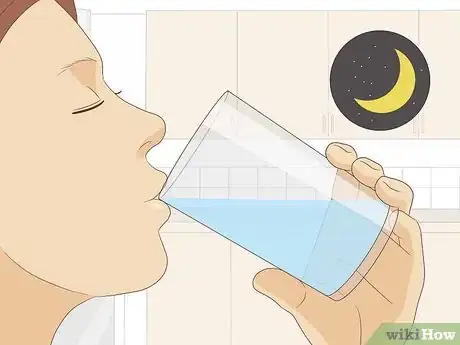
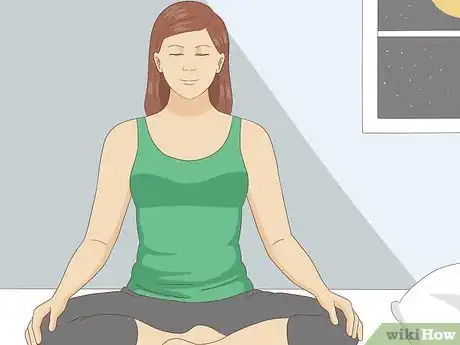



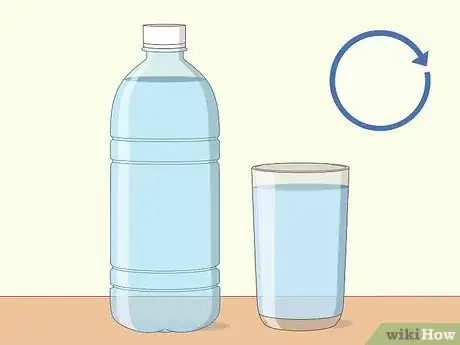

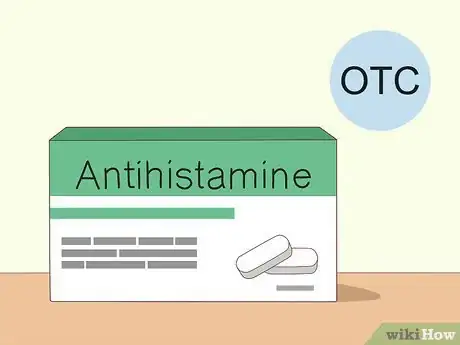
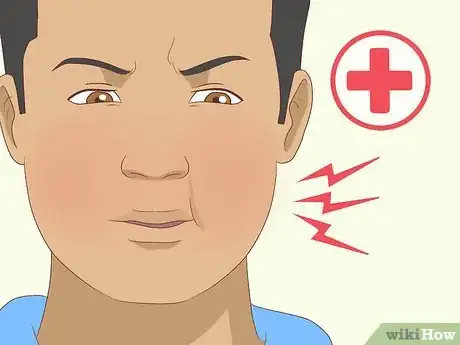
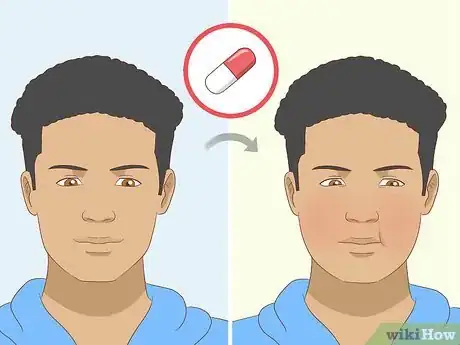
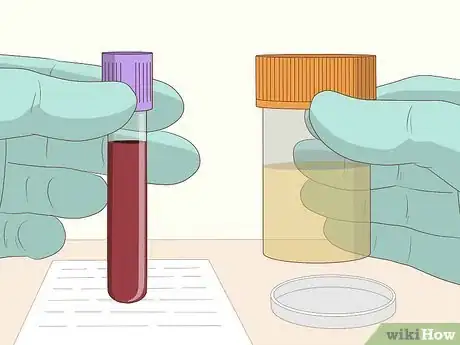


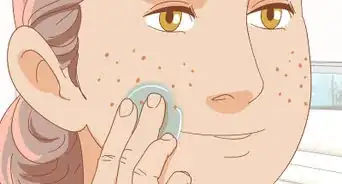

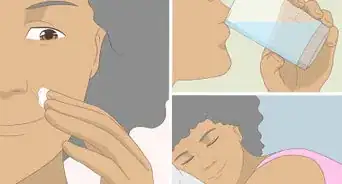


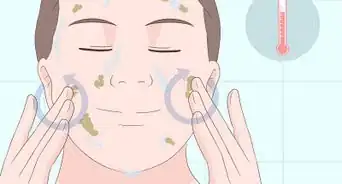

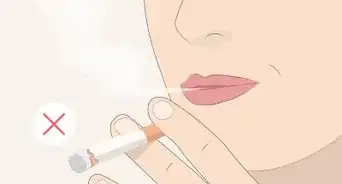
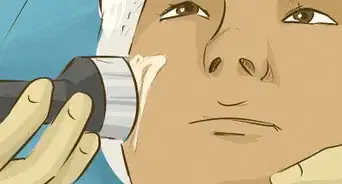
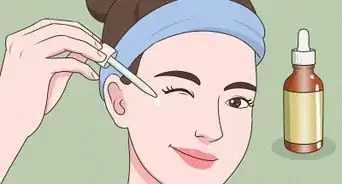








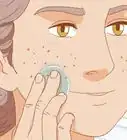




































Medical Disclaimer
The content of this article is not intended to be a substitute for professional medical advice, examination, diagnosis, or treatment. You should always contact your doctor or other qualified healthcare professional before starting, changing, or stopping any kind of health treatment.
Read More...